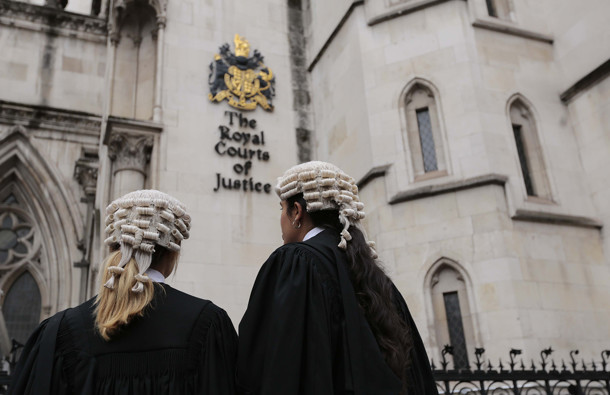
Open University students receive top scholarship awards from prestigious Gray’s Inn
July 6, 2021
Privacy v Productivity: Working from home
July 7, 2021The round-up of the stories that a budding Student Lawyer should be aware of this week. Sign up here to get these updates in your inbox every week.
Trade Law
UK joining the Asia-Pacific trade bloc
Reported by Katie Henderson
In a post-Brexit world, the UK has made a small but significant step towards ‘Global Britain’. With the withdrawal of the UK from the European Union, there followed a loss of over 40 trade deals with significant trading partners. Although the UK has made a number of separate deals, these have mostly been ‘copies’ of those it once had via the EU, leaving room for speculation that these deals were rushed.
The Trans-Pacific Partnership trade bloc is made up of 11 members: Japan, Malaysia, Vietnam, Singapore, Brunei, Australia, New Zealand, Canada, Mexico, Chile and Peru. Its potential as a powerful trading agreement was somewhat hindered by the US withdrawing its signature from the original agreement in 2017. Despite this there has been interest from China, Thailand, South Korea and Taiwan which would drastically increase the potential market. The UK’s potential accession signifies a notable shift away from Euro-centric trade deals and toward consumer markets in the Asia Pacific.
International trade secretary Liz Truss stressed the “benefits of joining a high-standards free-trade area, without having to cede control of our borders, money or laws”. The UK is eager to make its mark on the international trade stage however, it is questionable how this will be done without cooperation with and influence from, the EU due to its presence as a big player in international trade and regulations. A working group is in the making to organise rules governing trade and investment, it is not likely however that the UK will accede until next year.
You can find more here or here.
Olympic laws and Human rights
Legalities of transgender athletes in sport
Reported by Eleanor Aindow
The announcement that Laurel Hubbard, a 43 year old transgender weightlifter, will be the first openly transgender athlete allowed to compete at the Olympics has divided public opinion. Hubbard transitioned from male to female at the age of 35 and qualified for this year’s Olympics in the women’s super heavyweight 87kg+ category in line with the International Olympic Committee’s (IOC) regulations. However, numerous critics, including Hubbard’s rivals, have slammed this decision, deeming Hubbard’s inclusion unfair. This is in part due to the fact that Hubbard competed at a high level in men’s weightlifting events prior to transitioning in 2013.
In 2015, the IOC modified their guidelines on the eligibility of transgender athletes in the Olympics. For trans women to compete in the female category, their declared gender identity must be female and their total testosterone level must have been below 10 nanomoles per litre for at least 12 months prior to their first competition. These rules, with which Hubbard has complied, have dictated selection for this year’s Olympics in Tokyo.
However, considering that the average range for elite female athletes is 0.26 to 1.73 nanomoles per litre of total testosterone, this policy hardly seems fair.
There are two contrasting views surrounding the inclusion of transgender athletes in the Olympics and in professional sport as a whole, and it is a delicate balance to strike. One must consider the role of the law in protecting the rights of individuals, especially in cases where some people’s rights conflict with the rights of others. The world has come a long way in recognising and protecting the rights of minorities, such as trans rights, but there must still be a standard of fairness in sport which protects cisgender women who choose to compete at the highest level.
Transgender athletes like Hubbard have the right to fairness and inclusion, and there is still very minimal representation for transgender athletes, especially at Olympic level; Hubbard is the first openly trans athlete who has qualified to compete in the Olympics. There is also no evidence that trans athletes transition solely in order to gain a competitive advantage, and it is undeniable that total exclusion of trans athletes from sport would compound the discrimination that transgender people as a whole already face. However, cisgender female athletes also have the right to fairness in sport and, understandably, believe that allowing trans athletes to compete is inherently unfair owing to their physical advantage.
It is a proven scientific fact that men have significant physical advantages from puberty onwards. This is predominantly due to the levels of testosterone they produce, which causes such a large performance gap between the best male and female athletes that it is necessary to separate the sexes in sport both to allow fair and meaningful competition and to address health and safety concerns. No fitness regimen, amount of practice, or pure talent could allow the best female athletes a meaningful chance at competing and winning against the best male athletes.
According to Dr Emma Hilton, a development biologist, and Tommy Lundberg, a researcher in clinical physiology, the muscular advantage of trans women is only diminished by about 5% after a year of testosterone-suppressing treatment, and the strength and lean body mass of trans women remains higher than that of cisgender women even after three years of medication to block testosterone. Therefore, while their strength may be somewhat suppressed, anyone who went through male puberty has an advantage of at least 30% over cisgender females, which is problematic in a sport which relies on pure strength like weightlifting.
This advantage is the fundamental issue with the inclusion of Hubbard, who went through puberty as a male, in the female weightlifting category at the Olympics. While trans women may not consistently outperform cisgender female athletes, there are undeniable biological advantages to having gone through male puberty, such as increased bone and muscle density, which exist regardless of reduced testosterone levels. Some critics have gone as far as to assert that her inclusion could put thousands of women off competitive sport.
Ultimately, Hubbard herself has broken no rules and has qualified in line with the IOC’s rules. The question that must now be asked is whether the IOC truly do place fair and meaningful competition at the heart of everything they do. The science is there; lowering of testosterone does not take away biological differences between males and females, so it is unsurprising that critics consider it unfair to allow those who have gone through male puberty to compete against cisgender females. This does not mean that transgender athletes should not be allowed to compete in high level sport. It simply means that such inclusion should be done fairly to protect the integrity of women’s sport.
Case Law
UKSC’s case against sexual discrimination
Reported by Laurence Tsai
On 2 July 2021, the US Supreme Court by a 6 – 3 majority denied to hear an appeal by Baronnelle Stutzman, a florist who was fined £1,000 by Washington state for refusing to construct a flower arrangement for a same-sex wedding in 2013 on the grounds of religious belief.
Following Washington’s fine, Stutzman brought a claim before a lower court, who had upheld Washington’s decision. Stutzman’s punitive punishment by Washington was because her refusal to service a same-sex couple violated an anti-discrimination law. Washington went a step further and directed her to construct floral arrangements for same-sex weddings as she normally does for opposite-sex weddings.
This case may remind people of the famous 2018 case where the Supreme Court ruled by a 7 – 2 majority in favour of Jack Phillips, a Colorado baker, who refused to make a wedding cake for a same-sex couple for religious reasons as well. The 2018 case and the recent case raised the same legal questions under the US constitution’s first amendment. The first amendment guarantees freedom of expression.
The court noted in the 2018 case that the constitution and laws should protect heterosexual individuals and couples when they exercise their civil rights. However, the court then explained that religious and philosophical objections to gay marriage fall are protectable rights under freedom of expression.
Stutzman’s lawyers argued that Washington’s decision violated two of Stutzman’s fundamental human rights: (a) her right to religious expression; and (b) her right to free speech. Stutzman’s religious teachings inform her that marriage is the union between one man and one woman and explained that, while she serves same-sex couples who order flowers for other events, she will not service same-sex couples who request flowers to celebrate marriage.
Owners of businesses have been challenging laws forbidding discrimination based on sexual orientation on the basis that the constitution protects their right to free speech and freedom of religion.
Although this was a victory for the heterosexual couple, the court did not use this case to issue guidance pertaining to the circumstances in which religious beliefs can supersede the rights of gay couples in general. Indeed, in neither case did the supreme court determine whether business owners can or should be compelled to provide services that directly contradict their religious beliefs.



